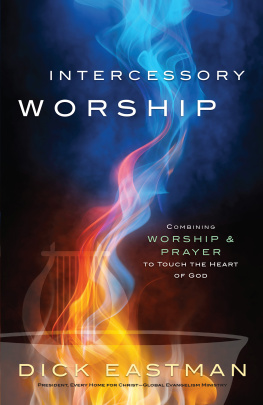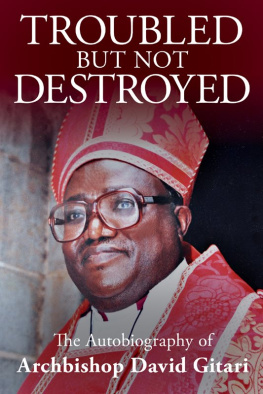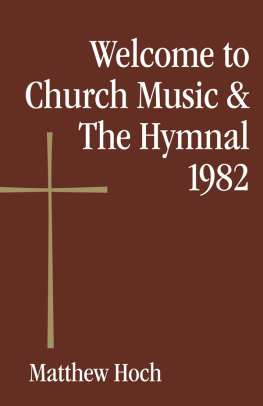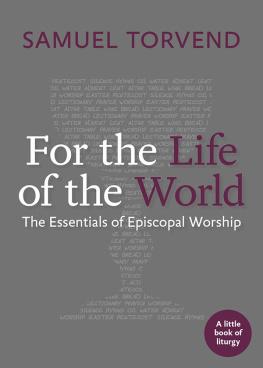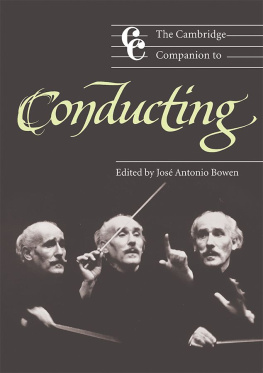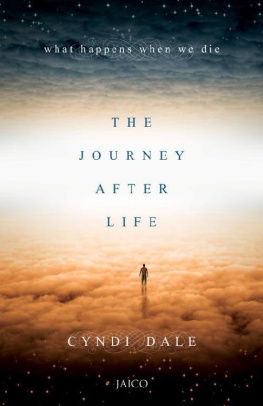The Contribution of Cambridge Ecclesiologists to the Revival of Anglican Choral Worship 1839-62
For my parents,
Layen and Shirley Adelmann
First published 1997 by Ashgate Publishing
Reissued 2018 by Routledge
2 Park Square, Milton Park, Abingdon, Oxon, 0X14 4RN
711 Third Avenue, New York, NY 10017, USA
Copyright Dale Adelmann, 1997
Routledge is an imprint of the Taylor & Francis Group, an informa business
The author has asserted his moral right under the Copyright, Designs and Patents Act, 1988, to be identified as the author of this work.
All rights reserved. No part of this book may be reprinted or reproduced or utilised in any form or by any electronic, mechanical, or other means, now known or hereafter invented, including photocopying and recording, or in any information storage or retrieval system, without permission in writing from the publishers.
Notice:
Product or corporate names may be trademarks or registered trademarks, and are used only for identification and explanation without intent to infringe.
Publishers Note
The publisher has gone to great lengths to ensure the quality of this reprint but points out that some imperfections in the original copies may be apparent.
Disclaimer
The publisher has made every effort to trace copyright holders and welcomes correspondence from those they have been unable to contact.
A Library of Congress record exists under LC control number: 97039983
ISBN 13: 978-1-138-34034-3 (hbk)
ISBN 13: 978-0-429-44070-0 (ebk)
So much of our common knowledge of music in nineteenth-century Britain is bound up with received attitudes. The modern musicologist working in this field contends not only with the hermeneutical contextualization of contemporary writings but also with undoing the often undiscriminating evaluatory processes of later and more modern generations of scholars. In some instances the historiographical calculus is so soritical that groundwork revision becomes a primary necessity. In other cases, despite a facade of impartiality, one detects some trace apologetic, be it aesthetic, theological, political, or otherwise. Given either situation, however, there exists the fundamental need to reassess the work of the period, as well as the work about the period, and in addition to explore areas of the topic which have hitherto remained unknown. The current series of Music in Nineteenth-Century Britain, of which Dale Adelmanns is the first to be published, is designed to fill these lacunae.
In respect of such needs, Dr Adelmanns book comes as a welcome addition to this expanding corpus of research. Especially at a time when manifold changes are being made to the nature of Anglican choral worship it is right that the process of reassessment include examination of its more recent nineteenth- century origins. Such a study, as is here presented, provides not only a formative reevaluation of the place of Anglican choral worship in the middle part of the century but also places the role of the Cambridge ecclesiologists in its rightful context as a primary force behind the revival. Clarification of ecclesiological influence is provided through a rich matrix of contemporary documentation, including amongst other things substantive personal diaries, correspondences, occasional papers and pamphlets, as well as newspapers and more formative critical writings of the time. Views of more modern writers are reconsidered, chiefly in light of the reputed influence of the Oxford Movement, Tractarianism, the episcopal hierarchy, and the cathedral institutions. Adelmanns work, therefore, adopts a mainly revisionist posture towards prevailing mythologies of the revival, particularly where modern misconceptions have become muddled up with the generally uninformed historiographical attitudes of the past. In this research Dr Adelmann delineates fact from fiction and introduces key figures with clarity and concentrated attention. Indeed, the role and influence of individual ecclesiologists and their circle of ecclesiology is here, for the first time, presented without a hidden apologetical agenda, and readers can assess, for themselves, the extent to which such men directed theological and aesthetic values of the times.
Bennett Zon, Hull
I wish to express my profoundly felt thanks to all of my colleagues and friends who have encouraged me throughout the process of researching, writing, and revising this book.
In the first instance I would like to express my gratitude to my supervisors at the University of Cambridge, Dr Roger Bowers and the Revd Dr Nicholas Thistlethwaite, for their support during the writing of the Ph.D. dissertation which comprises the body of this work. The staff of the University Library at Cambridge was unfailingly helpful, as were the staffs of the Wren Library at Trinity College, Cambridge; the Bodleian Library, Oxford; and the Royal Institute of British Architects in London. Specifically I would like to thank Mr Malcolm Underwood, archivist of St Johns College, Cambridge; Mrs Margaret Cranmer, Rowe Music librarian at Kings College, Cambridge; the Rt Revd Peter Mann, Dunedin, New Zealand; Ms Diane Scoggin, Diocese of Pietermaritzburg, South Africa; Stephen Kogut; and the archivists of Christs, Corpus Christi, Jesus, Peterhouse, and Queens Colleges, Cambridge; all of whom graciously assisted me in locating manuscripts and other sources that were critical to the completion of my work.
Without the financial support of the Fulbright Commission, the American Friends of Cambridge University, and the Master and Fellows of St Johns College, Cambridge, it would have been impossible for me to undertake this research. To them I am forever grateful. I would also like to thank the Very Revd Allen Farabee and the Vestry of St Pauls Cathedral, Buffalo, New York, for granting me the sabbatical leave which was necessary to revise the manuscript and prepare it for publication.
Without the encouragement and support of Dr Bennett Zon this work might never have been published. It was he who brought it to the attention of Ashgate Publishing, and my gratitude to him is immense. I wish to thank my editors, Rachel Lynch and Caroline Cornish, for their good-humoured assistance and care to ensure that the typescript conforms to current conventions of British spelling and punctuation; and Vera Kozak, for her helpful suggestions.
My brothers, their families, and dear friends too numerous to name have been a constant and incalculable source of encouragement, and I am ever mindful of the great fortune that is mine to be surrounded and cared for by such good people. Finally, I would like to thank my parents, for having loved and supported me in everything I have ever set out to do.
Dale Adelmann, Cambridge
It was both an academic and a performance interest in the Anglican choral tradition that originally compelled me to undertake this research. How, I wondered, had the performance standards of modern English choirs come to be so remarkably high? A glance at the history of choirs during the first decades of the nineteenth century within the Church of England revealed that, at that time, musical excellence was the exception rather than the rule. When did the improvement begin, and what happened to turn the tide? Most importantly, how was an ecclesiastical climate created in which Anglican choral worship could flourish?
The pursuit of answers to this pivotal, final question led me back to the 1840s and 50s, but not to the discovery of sweeping encouragement by the leaders of the Oxford Movement, and not to the bishops or cathedrals of the Church of England. Neither did it lead me to the careers of heroic musicians (though there were some of them), nor to the examples set by the colleges of Cambridge and Oxford whose choirs bring them such honour today. To my surprise it led to a group of Cambridge undergraduates. With the formation of the Cambridge Camden Society in 1839, they dedicated themselves to the revival of Anglican worship, determined to recapture the deep aura of spirituality which they perceived to be exemplified in medieval art and architecture, in all of its aesthetic and symbolic richness. It is largely to their efforts that the mid nineteenth-century Ecclesiological Movement may be attributed.



